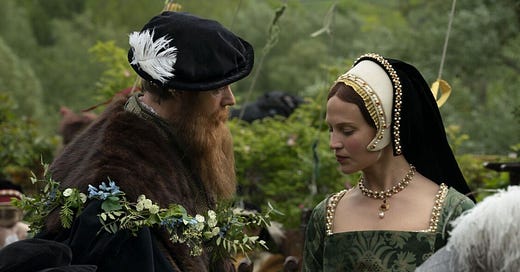Firebrand is a pretty good but not completely convincing period drama, starring Alicia Vikander and Jude Law, that tries to elevate Katherine Parr from pious sixth wife of Henry VIII to proto-feminist.
It’s based on a book called Queen’s Gambit by Elizabeth Fremantle, adapted by Henrietta and Jessica Ashworth, and directed by Karim Aïnouz (Invisible Life…
Keep reading with a 7-day free trial
Subscribe to A Celebration of Cinema to keep reading this post and get 7 days of free access to the full post archives.



